An European project to fight sexism amongst teenagers through play and gamification
Fight sexism through play: on the occasion of the mobilizations of 8 march, COSPE launches the new three-years project, “Play for your rights! Innovative media education strategies against sexism and discrimination”. The project aims at fighting sexist hate speech coming from stereotypes and gender discrimination among adolescents through social media education strategies and gamification practices. For young people, play is a powerful tool for learning and change: a way of involving adolescents in addressing complex phenomena with creativity and imagination.
Continue reading “PLAY 4 YOUR RIGHTS”
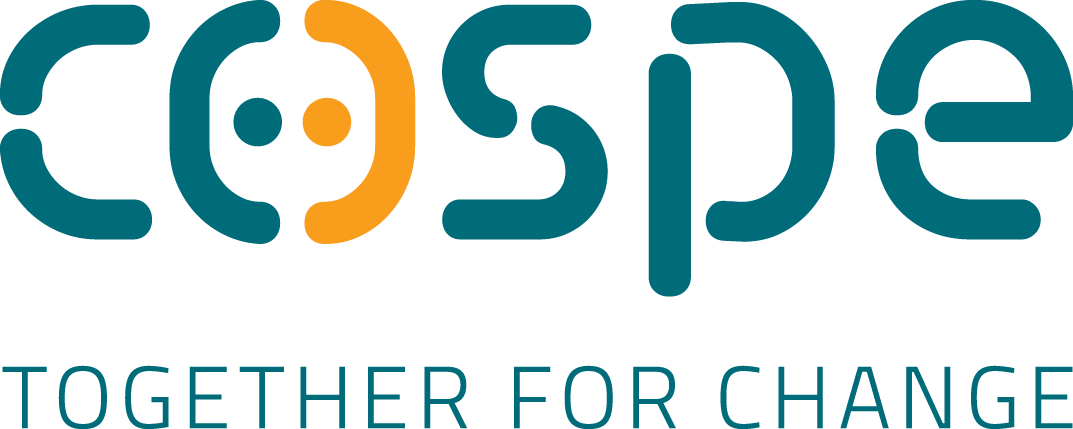
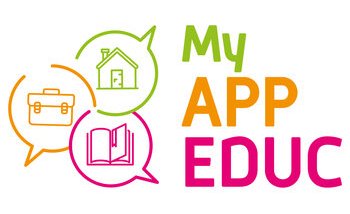
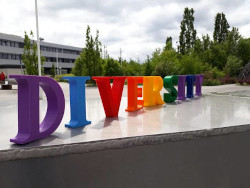
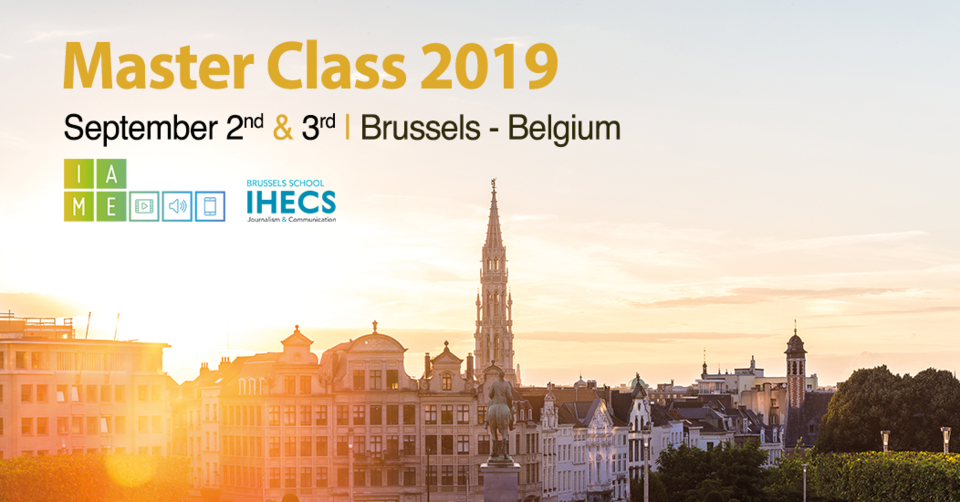
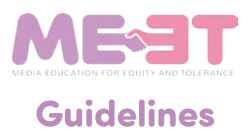
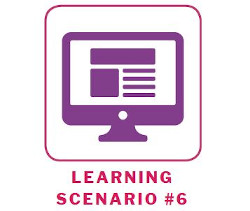
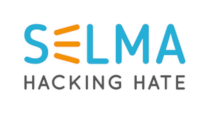 SELMA (Social and Emotional Learning for Mutual Awareness) is a two-year project co-funded by the European Commission which aims to tackle the problem of online hate speech by promoting mutual awareness, tolerance, and respect. The report “Hacking Online Hate: Building an Evidence Base for Educators” synthesises the main research findings of a comprehensive research programme carried out by the SELMA project to achieve a holistic understanding of the online hate speech phenomenon.
SELMA (Social and Emotional Learning for Mutual Awareness) is a two-year project co-funded by the European Commission which aims to tackle the problem of online hate speech by promoting mutual awareness, tolerance, and respect. The report “Hacking Online Hate: Building an Evidence Base for Educators” synthesises the main research findings of a comprehensive research programme carried out by the SELMA project to achieve a holistic understanding of the online hate speech phenomenon.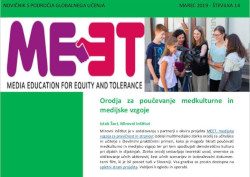 The MEET project is presented in the Global Learning Newsletter for educators, which The Peace Institute, MEET partner in Slovenia, is preparing within the framework of the Sustainable.Local.Globally. Project (Trajnostno.Lokalno.Globalno.).
The MEET project is presented in the Global Learning Newsletter for educators, which The Peace Institute, MEET partner in Slovenia, is preparing within the framework of the Sustainable.Local.Globally. Project (Trajnostno.Lokalno.Globalno.).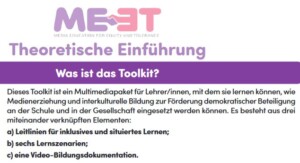 Die theoretische Einführung und die Leitlinien für inklusives und situiertes Lernen sind jetzt auch auf Deutsch erschienen. Ab sofort stehen auf der MEET-Website 5 Sprachversionen beider Dokumente zur Verfügung.
Die theoretische Einführung und die Leitlinien für inklusives und situiertes Lernen sind jetzt auch auf Deutsch erschienen. Ab sofort stehen auf der MEET-Website 5 Sprachversionen beider Dokumente zur Verfügung.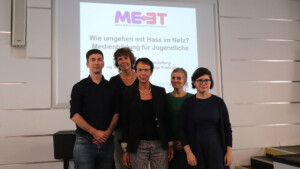 The Faculty of Social Sciences of the University of Vienna has created a Societal Impact Platform with the aim of making visible the research processes, the interactions with social actors associated with them, but also the research results. A presentation of the MEET project recently appeared there.
The Faculty of Social Sciences of the University of Vienna has created a Societal Impact Platform with the aim of making visible the research processes, the interactions with social actors associated with them, but also the research results. A presentation of the MEET project recently appeared there.